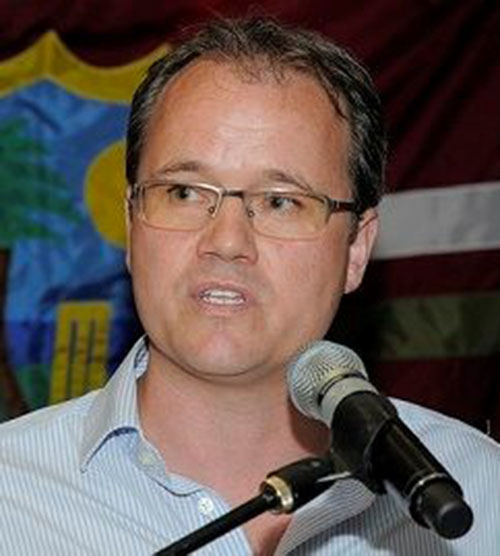BRIDGETOWN, Barbados, CMC – Cricket West Indies (CWI) should soon have a final UK-government approved plan from the England and Wales Cricket Board (ECB) outlining how the Caribbean side can safely go ahead with their summer tour.
Based on an update received from the ECB at a meeting earlier this week, CWI chief executive Johnny Grave is optimistic the safety of the players would be assured.
“I think it’s safe to say that they’re [ECB] getting increasingly confident that they’ve got a robust plan for what’s now being referred to as bio-secure cricket behind closed doors,” he said on the Mason and Guest radio show here Tuesday night.
“Our medical team are getting comfortable with those plans. The logistics are starting to be developed and I would say…we’re getting closer to, I think, being in a position to receive what would be a definitive plan by the ECB that’s been approved by the UK Government for us to consider.”
The three-Test series, scheduled to begin on June 4 but postponed because of the COVID-19 pandemic which curtailed sporting activity across the globe, is now tentatively set for early July.
Legendary West Indies captain Sir Clive Lloyd, also speaking on Mason and Guest from his home in England on Tuesday night, had expressed reservations about the tour, given the number of COVID-19 cases and deaths in the UK.
Over 250,000 people have so far tested positive for the highly contagious virus, including more than 36,000 who have died. The UK is fifth in the world in the number of cases and second behind the United States in terms of number of deaths.
However, Englishman Grave contended that, in addition to the peak of the COVID-19 outbreak having passed at the start of April, a bio-secure environment would be created for the West Indies players in England, and “the medical practitioners seem to be getting more and more confident that it will certainly be a very safe environment for the players to be in”.
He explained that once the green light is given for the tour, the 25-man squad would be tested at a private facility three days before travel to England.
The players would be flown by private charter to Antigua where they would board another charter flight to the United Kingdom. On arrival, they would be tested and quarantined for two weeks at a bio-secure venue where they would stay and play for the duration of the tour. The England players would also be quarantined ahead of the first Test.
“They [West Indies] are going to have four weeks in the UK – two weeks in quarantine, two weeks of preparation, so a whole month really – to get used to this environment,” Grave said.
“Certainly, we are doing everything we can to work with the players, work with the team management and obviously the ECB to ensure that environment that I just described is one that the players can be comfortable in, not just from a safety and health point of view, but also in terms of their mental well-being – that they’re not going to be cooped up in hotel rooms and that they’ve got access to the kind of home comfort and entertainment that they would expect and need for what would be seven weeks in a bio-secure environment.”
Questioned about who would fit the bill for the costs associated with such an undertaking, the cricket CEO said CWI would pay the players’ match fees, as is the norm for overseas tours.
However, he said, the travel bill is under discussion.
“We wouldn’t normally travel via charter flight to the UK so those are the discussions we are having with the ECB as they look to get a greater understanding of what the costs are going to be to host such a tour,” Grave said.
Addressing the issue of revenue sharing in cricket globally, Grave said he hoped that coming out of the current COVID-19 crisis, there would be a more equitable model of revenue distribution.
“We’ve lobbied now for a good few years around the economic model, around the fact that the revenue sharing, as it currently is, isn’t really sharing – it’s stacked in favour of the nations that have the biggest market and they already have a huge competitive financial advantage from that perspective anyway,” he said.
“We continue to ask for a pooling of revenues and a greater sharing of those revenues amongst the nations because we believe it’s key for everyone’s sustainability.”





